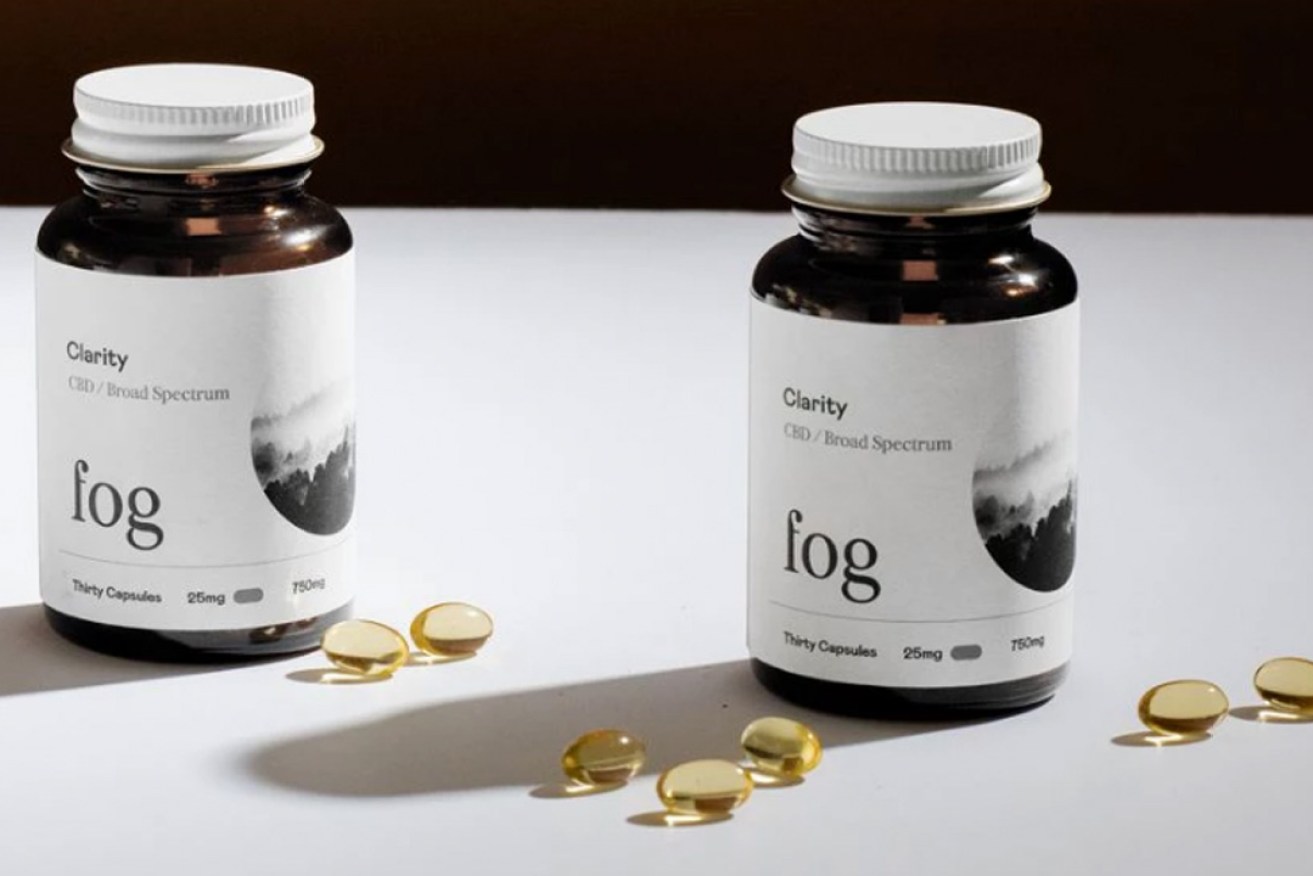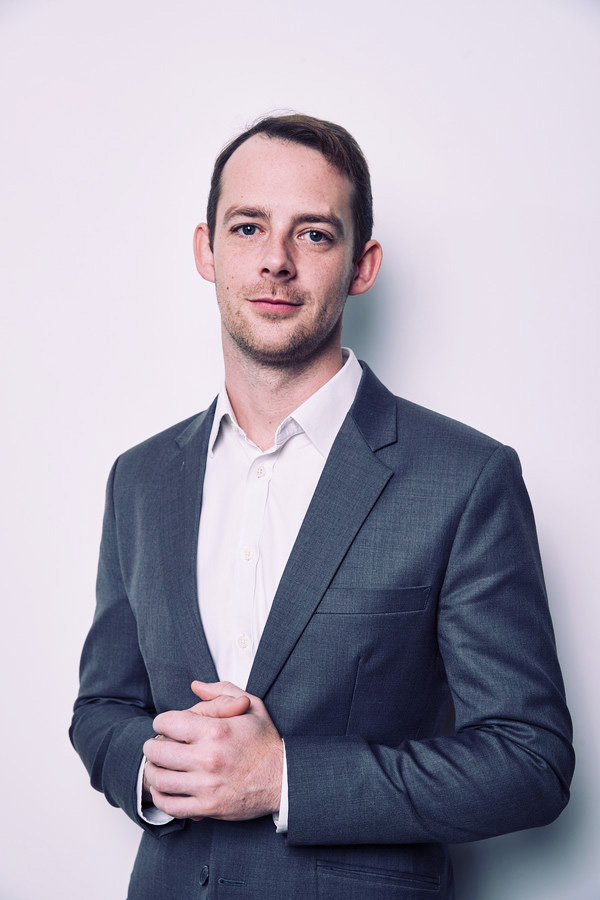Former SA Uber boss lobbies to legalise cannabis
EXCLUSIVE | The former head of Uber in South Australia says the state could become as famous for cannabis crops as it is for its wine regions – and he’s lobbying federal politicians to legalise recreational use of the drug across the country.


The cannabidoil product for sale on the Fog website.
Locky Cooper led Uber’s incursion into the South Australian market from 2013 before, this year, heading up local operations for electric scooter company Beam.
He has since resigned from that role to focus on his new cannabis company, Fog, which was registered at an address in Brompton in May this year.
He says the company works with cannabis cultivators and manufacturers of cannabidoil (CBD) in the United States, for sale to the UK market as “your remedy for the demands of the modern world” and “Brexit Relief”.
CBD, which is only available in Australia with a medical prescription, is distinct from the psychoactive chemical in cannabis THC.
Just look at our wine regions; they are world renowned – there is no reason cannabis can’t be the same
But Cooper says cannabis products, including those containing THC, should be legalised in order to regulate quality, derive tax benefits, improve access for medical patients who have trouble navigating the current system and free up police resources to focus on more serious crime.
Cooper told InDaily he has invited Health Minister Greg Hunt, Agriculture Minister Bridget McKenzie and representatives from across the federal political spectrum on a delegation to Canada in early December, to show them how a legal recreational cannabis industry might work in Australia.
He said South Australia was in an ideal position to benefit from a legalised recreational cannabis industry.
“Just look at our wine regions, (they are) world renowned – there is no reason cannabis can’t be the same,” he said.
“There are two million people that are currently accessing cannabis (through a) criminal supply chain … as a country we can do a lot better than that.
“The policy change is inevitable: Australia will follow the rest of the world and make responsible policy, based on the evidence.”
Cooper favours age-restricted access to recreational cannabis following a regulation in which products derived from the plant – including oils, edibles (food), capsules and vaporisers – are available for sale and controlled a similar way to cigarettes and alcohol.
Canada legalised the sale of cannabis products in June last year, but maintained a ban on possessing more than 30 grams of cannabis in public, buying from unlicensed dealers and selling the drug to minors.
…it is clear that the consumer, physicians, health care policy-makers, and government officials need to be sensitive to these concerns
The Australian Institute for Health and Welfare is currently conducting the National Drug Strategy Household Survey 2019 on behalf of the federal Department of Health.
The most recent results from the triennial survey, from 2016, show cannabis is the most commonly used illegal drug, with 10.4 per cent of those polled saying they had used it within the past 12 months.
Support for the legalisation of cannabis grew from 26 per cent in 2013 to 35 per cent in 2016.
A majority of respondents to the survey – 82 per cent – reported that if cannabis were to be legalised, they would still not use it, whereas 7.4 per cent said they would try it.
Cooper told InDaily he wanted Australian politicians to see how a legalised, regulated cannabis market works overseas.
“We would love to show them how responsible regulation can work and would love to show them the retail experience as well as production and manufacturing facilities (in Canada),” he said.
“Consumer demand is around vaporising, and edibles and oils and capsules, a lot (fewer) people are smoking.

Locky Cooper wants to see recreational cannabis legalised and regulated. Photo: supplied
“At the moment we’re doing CBD (only) but the plan moving forward will be … THC for responsible adult use.”
Canadian cannabis use rates are among the highest in the world, and the medical outcomes of legalising cannabis were not yet clear when an article in the Canadian Journal of Psychiatry on the subject was published last year.
“There are strong reasons to approach cannabis legalization (sic) cautiously, given that long-term mental health outcomes in Canada may be impacted,” the article, by researchers from the University of Toronto, Harvard Medical School and the University of Guelph, Ontario reads.
“Data from the first US states that have legalized cannabis for recreational use – e.g., Colorado, Oregon, Washington, and Alaska – and other countries that have pursued cannabis legalization – e.g., Portugal and Uruguay – are unclear with respect to the mental health impact and may not yield firm conclusions for several years.”
“Nonetheless, given what we know about the effects of cannabis and mental health, it is clear that the consumer, physicians, health care policy-makers, and government officials need to be sensitive to these concerns.”
Cooper argued that “society will be a better place when people have access to cannabis, but only when it’s regulated properly”, stressing that he only supported legalisation for adult consumers.

A screenshot from the Fog website, which markets its Clarity CBD product as “Brexit Relief”.
Asked whether it was politically likely that the current Coalition Government would endorse legalising recreational cannabis, Cooper said he believed policy change was inevitable.
He sent invitations to the Health and Agriculture ministers, along with Greens Leader Richard Di Natale, Labor Treasury spokesperson Chris Bowen and Agriculture spokesperson Joel Fitzgibbon for the mid-December delegation to Canada, last week.
“We haven’t heard back yet,” he said.




